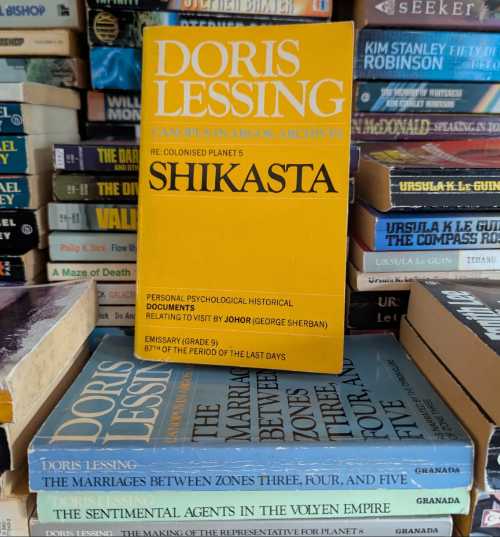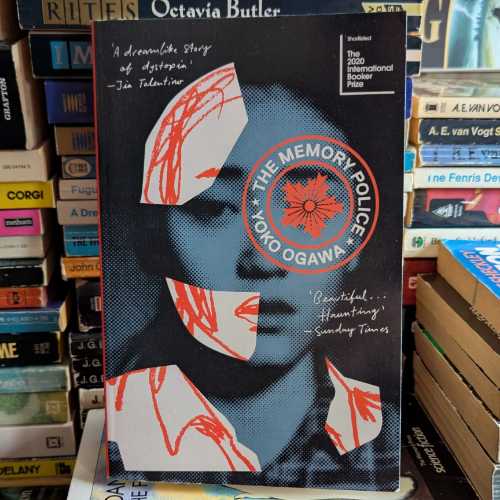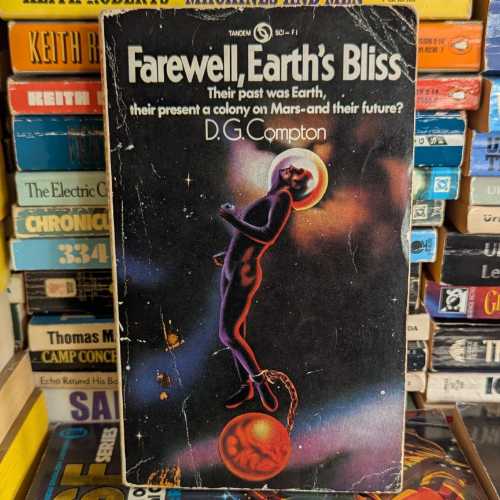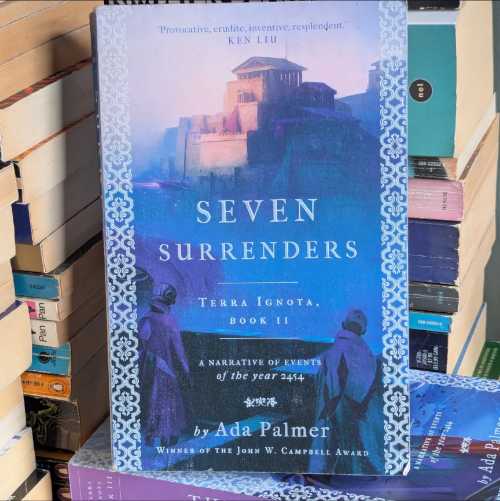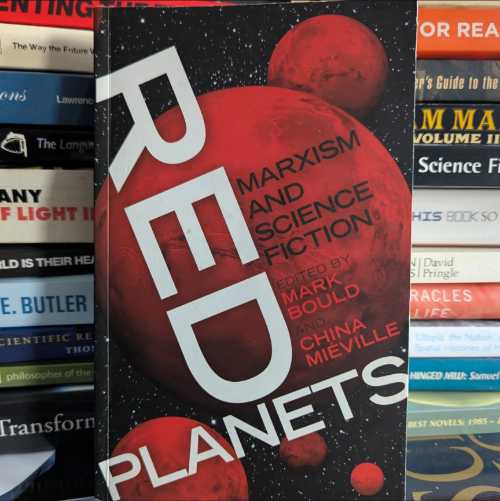Shikasta
★★★★★Defining SF is slippery, but I like that the world has to be explicable otherwise it’s Fantasy, Magical Realism, or Spiritual. Shikasta is the latter, with humanity’s fate in the hands of a godlike galactic civilisation whose powers, and the rules governing them, are never explained.
The epistolary format kicks off with dry reports and a didactic history in which Shikasta is seeded with sentience, establishing a utopia. Lessing’s banal Garden of Eden is hard to love - humanity is little more than genetically engineered animals, living in functional cities designed to maintain a flow of energies to the galactic civilisation. It’s a vision of a bovine humanity with little free will.
For mystical reasons, things soon go wrong, plunging Shikasta into a chaos which becomes increasingly familiar as Lessing incorporates Old Testament and Sufi influences into her mythos. Tainted genetic lines are culled with brutal Old Testament wrath and alien eugenics. There’s entertainment in decoding the appropriated religious stories by mapping proper nouns, but it’s difficult to feel invested in the dry historical exposition.
Lessing then bores us with interminable exposés of humanity’s worst. Each pitiful vignette relates an unconnected clichéd life story. None plays any role in the larger narrative, none has any arc or resolution. These are police reports as worldbuilding, adding no depth or texture, bluntly hitting you over the head with the message that the world is evil. This entire section is an invitation to DNF.
Finally, around page 300, we get some plot as we read the diaries of Rachel, the sister of Johor, an incarnated god. Arguably, Johor is the protagonist, but he’s boring, preachy, and entirely lacking in depth. Rachel at least develops along a character arc, but comes across as pathetic, ultimately contributing little to the larger narrative.
Lessing’s world is irredeemably awful, and we lack the agency to fix it. In the end, I don’t know what she was trying to say. Most egregiously, she didn’t tell a story - just related some things that happened, prioritising allegory over plot. A book to avoid.
